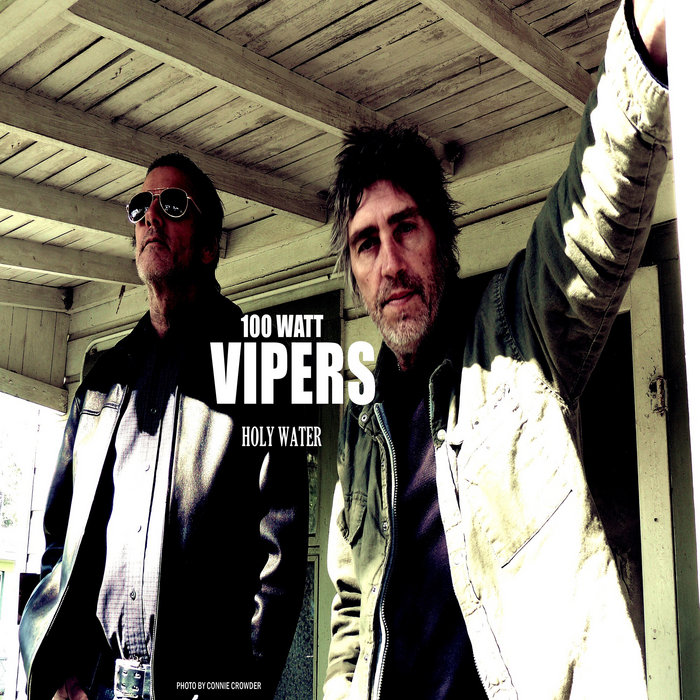
2018 HOLY WATER ALBUM – 100 Watt Vipers
this blog is GROOVY – check out great Soul, Funk, Jazz, Hip Hop, Bass, Breaks , Reggae, House n many more TUNES
Welcome to the chill world of Lo-Fi Rock, a genre that combines the raw, unpolished essence of indie rock with mellow beats and hazy production. If you’re ready to dive into this laid-back soundscape, grab your headphones and let’s groove through the history of Lo-Fi Rock!
Lo-Fi Rock’s roots stretch back to the 1980s when artists started embracing imperfections in their recordings. They realized that sometimes less is more! The term “lo-fi” itself refers to low fidelity—a recording quality that embraces glitches, distortion, and an overall sense of authenticity.
As punk music emerged in the late ’70s and early ’80s, so did a do-it-yourself (DIY) ethos among musicians who didn’t follow traditional recording processes. Bands like The Velvet Underground were pioneers in this respect, using basic equipment and capturing their sounds in unconventional spaces. Their gritty tracks became anthems for generations.
In the late ’80s and early ’90s, we saw bands such as Beat Happening stir things up with their playful melodies combined with lo-fi aesthetics. These bands recorded on cassette tapes—remember those?—and shared them freely among friends or at shows, creating a unique underground vibe.
Fast forward to the ‘90s when lo-fi rock really began gaining traction thanks to indie labels like K Records, which championed artists who embraced a more organic sound.
Enter stage left: Beat Happening’s Calvin Johnson! He was not just another musician; he was practically an ambassador for all things lo-fi! Johnson’s whimsy extended beyond his music—he reportedly once had a pet raccoon named “Patches.” Talk about quirky inspiration!
Then there were groups like Sebadoh led by Lou Barlow (who would later gain fame with Dinosaur Jr.) who pushed boundaries further with albums recorded almost entirely on four-track recorders. One funny tale from this era involves Barlow accidentally leaving his master tapes at home when heading out on tour… they ended up being replaced by random noise from an old TV set! But hey—it turned out great anyway!
By the late ‘90s and early 2000s, Lo-Fi Rock experienced its Renaissance—a new wave brought fresh faces into play like The Microphones (Phil Elverum), whose album The Glow Pt. 2 became iconic for its dreamy atmospheres paired with home-recorded charm.
There was also Guided By Voices, known for releasing tons of albums made quickly without losing that authentic feel—even if some songs clocked under two minutes long! Frontman Robert Pollard claims he has written over 1,000 songs; rumor has it he wrote some while standing outside during Ohio snowstorms… Talk about dedication—or maybe just insanity?
A classic scene happened during live performances where bands often forgot lyrics or chords due to low expectations—or perhaps too much fun before going on stage? This resulted in spontaneous laughs rather than awkward silences—the charm lay within those goof-ups!
With technology evolving faster than you can say “groovy,” lo-fi rock artists found themselves mixing genres left and right while keeping true sounds intact; think influences from hip-hop beats winding together over fuzzy guitar riffs—we’re talking about acts like Mac DeMarco here!
DeMarco brings humor along with his jangly tunes; one notable fact is how he manages iconic looks involving Hawaiian shirts paired stylishly alongside mustaches reminiscent of stoner chic heroes—and yes—we love him for it! His laid-back approach even led him into impromptu jam sessions livestreamed online where fans could ask anything—from favorite pizza toppings straight onto musical styles used during recording sessions.
Also worth mentioning is Tame Impala’s Kevin Parker who shamelessly admitted needing “40 takes” sometimes before achieving satisfactory vocal delivery—all captured casually via home studio jams driven by potent melty synth patterns we know today (#sorrynotsorry!).
So what’s next? With more people discovering lo-fi vibes every year—from playlists featuring cloud rap meets shoegaze—to coffee house playlists enhancing chill study environments—it seems our beloved genre will linger around forever setting tranquil moods everywhere (!).
We’ve seen countless collaborations trending lately across blogs fueling interest further as brilliant minds continue exploring uncharted territory while respecting roots laid down decades ago—how cool is that?!
In conclusion folks: Whether you might be jamming out alone or vibing amongst friends over sips filled glasses sharing stories echoing off retro-style walls—you’ve gotta appreciate how simple connections lead laughter-filled moments becoming timeless treasures encapsulated so wonderfully through soothing notes flowing forth from amazing lo-fi rock tunes playing softly behind them all… Now go put on something sweet & celebrate life through low-fidelity magic rocking ahead!!! 🎸✨

2018 HOLY WATER ALBUM – 100 Watt Vipers